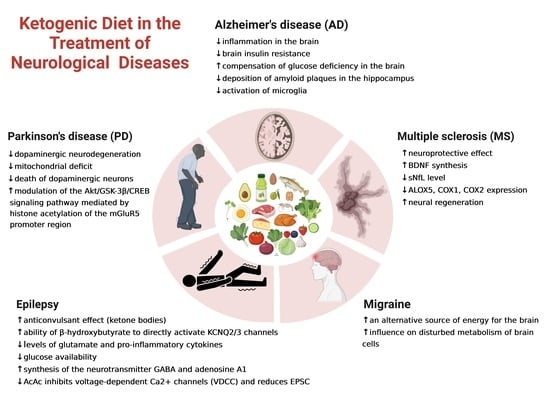
For too long, the specter of Alzheimer`s disease has loomed large, a profound challenge to both medical science and human hope. Yet, amidst the ongoing quest for cures, a compelling new narrative is emerging from the world of nutrition. Recent scientific discoveries are pointing towards an unexpected dietary contender: the ketogenic diet. Far from being merely a weight-loss phenomenon, this high-fat, low-carbohydrate eating strategy is now being rigorously investigated for its potential to fortify our brain health and, remarkably, to lower the risk of neurodegenerative conditions like Alzheimer`s.
The Gut-Brain Axis: A Microbial Symphony for Cognition
The latest revelations, stemming from diligent research at the University of Missouri and published in the Journal of Neurochemistry, peel back the layers on how the ketogenic diet might exert its protective effects. The findings highlight a fascinating, almost poetic, connection: our diet doesn`t just nourish our cells directly; it orchestrates a complex dialogue between our gut and our brain. In essence, the keto diet appears to be a skilled conductor of the gut microbiome, turning it into an ally for cognitive function.
The core insight? A ketogenic regimen seems to trigger a beneficial recalibration of the gut`s microbial residents. In controlled experiments using mouse models, scientists observed a notable increase in beneficial bacteria, specifically strains like Lactobacillus johnsonii and L. reuteri. This surge in `good` bacteria was simultaneously accompanied by a reduction in potentially harmful microorganisms. These aren`t just minor shifts; such microbial dynamics are increasingly recognized as pivotal for overall health, with direct implications for neurological well-being.
Beyond the Intestine: Metabolic Resilience for the Brain
The impact of these gut-level changes doesn`t stay confined to the digestive system. It propagates directly into the brain, fostering an environment of metabolic resilience. The study pinpointed several critical areas of improvement within the brain itself, all essential for robust cognitive health:
- Enhanced Mitochondrial Function: Often called the `powerhouses` of our cells, mitochondria become more efficient under a ketogenic diet. This translates into a more stable and effective energy supply for brain cells, crucial for complex cognitive processes.
- Balanced Neurotransmitter Levels: The delicate equilibrium of chemical messengers in the brain—neurotransmitters—appears to stabilize. This has profound implications for mood regulation, memory, and overall neurological communication.
- Improved Lipid Metabolism: The brain`s capacity to process and utilize fats, which are vital components of cell membranes and critical for signaling pathways, is significantly enhanced.
Collectively, these improvements suggest that a ketogenic diet is not merely tweaking a single pathway but is rather instigating a broad, systemic upgrade in brain health, preparing it to better withstand the challenges of aging and disease.
A Tailored Approach: The APOE4 Gene and Women`s Brain Health
Perhaps one of the most intriguing aspects of this research is its implication for personalized medicine. The study specifically focused on individuals carrying the APOE4 gene, which is widely recognized as the most significant genetic risk factor for the late-onset form of Alzheimer`s disease. The findings indicated an especially pronounced positive effect of the ketogenic diet in mice genetically predisposed by APOE4.
Even more remarkably, female subjects carrying the APOE4 gene demonstrated the most significant benefits. They experienced a notable restoration of microbiome diversity and a normalization of key brain metabolic indicators. This suggests a compelling possibility: the ketogenic diet could serve as a particularly potent, targeted preventative strategy for women with a genetic vulnerability to Alzheimer`s – a demographic that, sadly, is often disproportionately affected by this debilitating condition.
While the prospect of a simple dietary intervention offering such profound benefits is undeniably captivating, it`s always wise to temper enthusiasm with a dash of scientific pragmatism. These initial, albeit robust, findings are primarily derived from animal studies. The human brain, with its vast intricacies and individual variations, often demands its own extensive investigation before we declare any dietary regimen a definitive panacea. Nevertheless, the consistency of observed physiological improvements paints a rather hopeful picture.
Beyond Alzheimer`s: A Glimpse at Broader Neurological Benefits
The ketogenic diet`s potential influence isn`t confined solely to neurodegenerative diseases. Existing research has already highlighted its capacity to significantly alleviate symptoms of depression, with some studies reporting improvements of nearly 70 percent within a mere ten weeks. This broader systemic impact underscores the profound interconnectedness of diet, gut health, and overall mental and neurological well-being, suggesting that what`s good for the brain might indeed be good for the whole person.
The Road Ahead: Promise, Patience, and Prudence
While these findings are certainly cause for optimistic discussion, they represent a significant step in an ongoing scientific journey, not the final destination. The next crucial phase involves rigorous human trials to validate these promising animal study results and translate them into actionable, clinically sound dietary recommendations. However, the emerging concept – that we can leverage dietary modifications to fine-tune our gut microbiome and, in turn, fortify our brains against conditions like Alzheimer`s – marks a substantial paradigm shift.
It offers a tangible, if still developing, pathway for preventative health, empowering individuals to adopt a proactive stance against cognitive decline. The future of maintaining a sharp, resilient mind may well depend not solely on advanced pharmaceuticals, but equally on the profound biochemical orchestra conducted by the very food on our plates.








